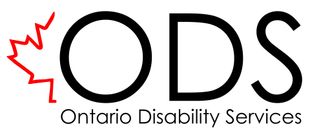Why Choose Us?
- First time, renewal and appeal applicants welcome
- Free one on one consultation
- Potential caregiver entitlements
- Our medical consultants work with your family physician
- We meet all personal disclosure requirements for your peace of mind
- Your advocate with CRA
Disability Tax Credit
Get a Free Quick Assessment Today!
Call today for your FREE initial consultation. Don’t forget to inquire about the Referral Program!

Designed to provide financial assistance to disabled individuals and their families in need of help, the Ontario Disability Support Plan (ODSP) amended their regulations for beneficiaries who receive ODSP when it comes to both income and assets. The Key Amendments That Most Impact Estate Planning Include: · Raising asset limits. As of January 2018, those receiving ODSP benefits are now able to own up to $40,000 in liquid assets per single person and $50,000 per couple. A significant change from the previous $5,000 and $7,500. · Income Limit Increase. As of September 1st, 2017, ODSP recipients can now receive 10,000 a year from a cash gift or voluntary payment from a trust distribution or insurance policy without it impacting their benefit. Before this the maximum amount allotted was $6,000. · Certain Gifts Are Now Exempt From Income. In the past many types of gifts received by an ODSP participant were treated as income during the month in which they were received and thus clawed back from the benefit. However, as of September 1st, 2017 a gift in any amount does not reduce the benefit amount as long as it is used for first or last month’s rent, or to purchase a vehicle or principal residence. Coupled with the above ODSP amendments, recipients under the plan also saw a 2% increase on September 1st, 2017. When it comes to life insurance and life insurance held in a trust, the cash surrender and asset value remains at a total of $100,000. When it comes to using an Absolute Discretionary Trust (commonly referred as a “Henson Trust”), this was not affected by the above amendments. Henson Trust allows their Estate Trustee complete discretion over the trust so that he/she may continue to pay the necessary expenses of the disabled child. As a result of the Henson Trust, families have the assurance that their disabled child will be provided for in the years to come while knowing that he/she cannot compel the estate trustee to make payments. As an advocate for those with disabilities, David H. Blascik, CFP’s, mission is to help every client recover ALL Disability Tax Credits that may have gone unclaimed over the past 10 years. He has worked with many different variables and has helped individuals receive up to $4,000 a year – tax free! David specializes in all processes involved with Disability Tax Credit applications and is happy to meet with you for a free no obligation consultation today!

Designed to provide financial assistance to disabled individuals and their families in need of help, the Ontario Disability Support Plan (ODSP) amended their regulations for beneficiaries who receive ODSP when it comes to both income and assets. The Key Amendments That Most Impact Estate Planning Include: · Raising asset limits. As of January 2018, those receiving ODSP benefits are now able to own up to $40,000 in liquid assets per single person and $50,000 per couple. A significant change from the previous $5,000 and $7,500. · Income Limit Increase. As of September 1st, 2017, ODSP recipients can now receive 10,000 a year from a cash gift or voluntary payment from a trust distribution or insurance policy without it impacting their benefit. Before this the maximum amount allotted was $6,000. · Certain Gifts Are Now Exempt From Income. In the past many types of gifts received by an ODSP participant were treated as income during the month in which they were received and thus clawed back from the benefit. However, as of September 1st, 2017 a gift in any amount does not reduce the benefit amount as long as it is used for first or last month’s rent, or to purchase a vehicle or principal residence. Coupled with the above ODSP amendments, recipients under the plan also saw a 2% increase on September 1st, 2017. When it comes to life insurance and life insurance held in a trust, the cash surrender and asset value remains at a total of $100,000. When it comes to using an Absolute Discretionary Trust (commonly referred as a “Henson Trust”), this was not affected by the above amendments. Henson Trust allows their Estate Trustee complete discretion over the trust so that he/she may continue to pay the necessary expenses of the disabled child. As a result of the Henson Trust, families have the assurance that their disabled child will be provided for in the years to come while knowing that he/she cannot compel the estate trustee to make payments. As an advocate for those with disabilities, David H. Blascik, CFP’s, mission is to help every client recover ALL Disability Tax Credits that may have gone unclaimed over the past 10 years. He has worked with many different variables and has helped individuals receive up to $4,000 a year – tax free! David specializes in all processes involved with Disability Tax Credit applications and is happy to meet with you for a free no obligation consultation today!

Many people are surprised to learn that Autism Spectrum Disorder is the most diagnosed neurological disorder among children in Canada. To be clear, one in 66 youth have autism. What is even more disheartening than those statistics is that recent data shows when it comes to disability tax credit claims in Canada, applications related to mental functioning are consistently the ones that are rejected the most. How does that make sense? Last November a group that represents Canadians living with and caring for those with autism said too many families are having to fight with the Canada Revenue Agency to ensure they can receive the Disability Tax Credit. Since then, Autism Canada says it’s heard from a multitude of families saying they have to apply and re- apply for the tax credit for their children over and over again. Even older adults with autism are reporting that, after qualifying for the disability tax credit for years, the CRA is now revoking the credit without warning. Why? “Our perception is, from speaking with our constituents, that there’s been a more aggressive approach to not just the original application process, but also the review process,” Dermot Cleary, the chair of the board of directors of Autism Canada, told CTV News Channel. The reality of autistic Canadians is also being overlooked by the lack of proper representation on the 12- member Disability Advisory Committee, which was reinstated just last year. This volunteer committee oversees the two programs but doesn't have representation from Canadians living with neurodevelopment disabilities, including autism or episodic disabilities, such as multiple sclerosis. As an advocate for those with disabilities, David H. Blascik, CFP’s, mission is to help every client recover ALL Disability Tax Credits that may have gone unclaimed over the past 10 years. He has worked with many different variables and has helped individuals receive up to $4,000 a year – tax free! Being approved for the DTC is also a precondition for accessing a number of other benefits, including RDSP. The RDSP helps people with severe disabilities and their families to save for the future and the idea of the program was hailed as one of the most progressive savings plans in the world. Yet the reality is less favourable as fewer than 15 per cent of Canadians with qualifying disabilities are accessing this program. Do you qualify to receive substantial refunds via the DTC and related programs? David specializes in all processes involved with Disability Tax Credit applications, is happy to meet with you for a free, no obligation consultation today !

The Disability Tax Credit (DTC) and Registered Disability Savings Plan (RDSP) are crucial to Canadians with disabilities. Twice as likely to live in poverty compared to other Canadians, these federal programs were created to provide economic supports to the 1.8 million Canadians suffering from severe disabilities who incur additional costs as a result of their disabilities that other Canadians do not, such as medication and transportation – just to name a few! However, many with physical disabilities and serious mental health issues are being denied crucial tax credits due to a change in eligibility criteria. Why? If you are a Canadian living in low income with a severe disability, you have to prove your disability status to your provincial government to claim disability supports, and then "reprove" your status to the federal government to gain eligibility to the DTC to set up an RDSP. The RDSP helps people with severe disabilities and their families to save for the future and the idea of the program was hailed as one of the most progressive savings plans in the world. Yet the reality is less favourable as fewer than 15 per cent of Canadians with qualifying disabilities are accessing this program. In fact, it turns out the CRA rejected more than 45,000 applications in 2016-17 compared to 30,235 the year before — an increase of nearly 50%. Why haven’t we heard more about this? Well, it wasn’t until Diabetes Canada and the Juvenile Diabetes Research Foundation sounded the alarm last fall that this issue even came to light. Senators studying the problem found out that many Canadians were being denied due to a change in the clarification letter — a document the CRA sends to doctors to validate patients’ claims for the tax credit. For example, in the case of people with diabetes, the letter said that only in rare cases would a diabetic need 14 hours per week to administer insulin therapy, meaning most diabetics would not be eligible for the tax credit. On top of everything else, completing these applications is not without cost. People can pay hundreds of dollars to their physicians to complete an application form certifying their disability (in some cases every year) — a certification that is out of touch with global standards of disability determination. As well, many bank branches simply do not support in-person set up of the RDSP. It is unclear why anyone who meets the strict criteria for provincial disability supports would not be entitled to the DTC and RDSP. According to a report by CBC News, National Revenue Minister Diane Lebouthillier provided an apology for these “unintended consequences” faced by thousands of Canadians. But we need to do better. For the sake of transparency, Canadians applying for the tax credit should at the very least be given specific reasons why their applications are rejected. A report was recently released titled, Breaking Down Barriers: A Critical Analysis of the Disability Tax Credit and the Registered Disability Savings Plan , and was designed to improve the process and make it fairer for all Canadians who are eligible for these benefits. It can be found by clicking here . Basically, the report is urging the federal government to act on these recommendations so those people living with disabilities receive the support they deserve! As an advocate for those with disabilities, David H. Blascik, CFP’s, mission is to help every client recover ALL Disability Tax Credits that may have gone unclaimed over the past 10 years. He has worked with many different variables and has helped individuals receive up to $4,000 a year – tax free! Being approved for the DTC is also a precondition for accessing a number of other benefits, including RDSP. Do you qualify to receive substantial refunds via the DTC and related programs? David specializes in all processes involved with Disability Tax Credit applications, is happy to meet with you for a free no obligation consultation today!








